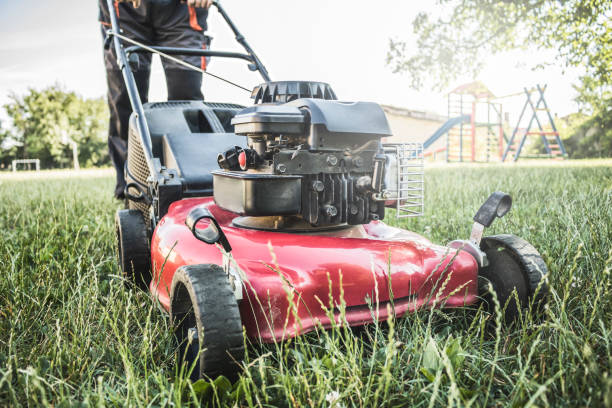Propane vs. Gas for Mowers: Landscape Business Owners Share Insights

Switching to an alternative fuel source requires a shift in fueling strategies and crew training. Landscape business owners weigh in on their experiences using propane as an alternative to gasoline for their mowers, considering factors like maintenance, performance, fueling logistics, and environmental concerns.
Going Green for the Environment
Doug Duschene, owner of Bozeman Site Services in Bozeman, Montana, vividly remembers a smog-covered Salt Lake City during a drive. Determined not to see the same in his town, he made a change. In 2016, Bozeman Site Services transitioned to propane and converted all their mowers to propane power. This company offers maintenance, lawn care, snow removal, and irrigation services, primarily to residential clients (60%) and commercial clients (40%).
Besides reducing their environmental impact, the switch to propane also brought cost savings compared to gasoline. Doug Duschene, the owner, recalls, “It’s significantly cheaper, especially when gas prices were through the roof. At one point, it cost 25 percent of what you’d pay for gas.”
However, one key difference was that propane couldn’t be refueled at regular gas stations. Bozeman Site Services established its filling station and trained its employees in propane tank filling procedures to address this. According to Duschene, propane may be slightly less powerful than gasoline, but it’s sufficient for regular maintenance work. He notes, “You don’t need that high gas power unless you’re mowing through really thick grass.”
Over time, though, as dealers in their area stopped offering conversion kits, the company switched back to electronic fuel injection for their new mowers. Duschene mentions that propane helped them win contracts and save money, but he regrets not being able to continue with propane due to the lack of conversion kits for newer mowers.
Reducing Maintenance, Impact, and Costs
Adam Sarver, president of Sarver Landscape in Wexford, Pa., also found propane appealing for his landscaping business. Sarver Landscape specializes in landscape maintenance, tree care, enhancements, and snow removal services for commercial clients.
Previously, nearly half of Sarver’s fleet used propane, thanks to conversion kits. A mechanic managed refueling for these propane-powered mowers, which required the handling and securing of 33-pound propane tanks by the crews. This approach offered the company greater control since it minimized stops at gas stations.
Sarver notes the benefits: “Propane burns cleaner, requires less maintenance, and avoids fuel stabilization issues. It allowed us to stabilize and control fuel costs and provided marketing opportunities to promote our green approach.”
However, due to changes in manufacturer agreements that invalidated factory warranties on newly converted propane machines, Sarver’s fleet now includes only about 5% propane-powered equipment. Sarver emphasizes the importance of complex machine warranties and is investing in electronic fuel injection. He looks forward to exploring electric and battery options when they become more practical for his business.










